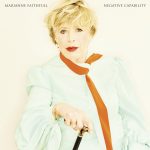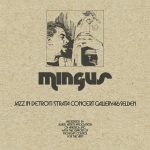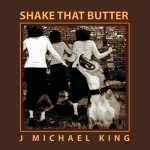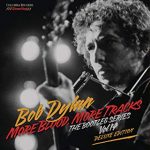
ROSANNE CASH, She Remembers Everything (CD/LP)
Rosanne Cash has delivered some of the most memorable albums in this millennium. Her previous, 2014’s The River and the Thread earned three Grammy Awards. This time out though she steps away from her roots, history and familial linkage to write from a deeply personal perspective on her life, the world we’re in, and the future, with an eye toward mortality. She Remembers Everything as a title implies some discomfort. You can read more than one angle into it. Cash is looking at the world with a critical eye. If you caught her speech at this year’s Americana Music Awards Show where she received the “Spirit of Americana” Free Speech Award, you’ll readily hear her stance in the album. She made three points of which we quote her first lines – “1. that artists and musicians are not damaged outcasts of society, but indispensable members. We are in fact the premier service industry for the heart and soul……2. Women are not small, inferior versions of men. We are not objects or property. We have unique gifts to offer and if you discount us, the whole world tilts on an unnatural axis……3. I believe with all my heart that a single child’s life is greater, more precious, and more deserving of the protection of this nation and of the adults in this room than the right to own a personal arsenal of military-style weapons. The killing of children in schools should not be collateral damage for the 2nd amendment.” Yet Cash, as few can, delivers her raw honesty gracefully and elegantly. Cash wrote all the lyrics, and three songs entirely on her own, while other collaborators fashioned the music. Principal collaborator of course, was husband and multi-instrumentalist John Leventhal, who has steered her projects for the better part of two decades. But, besides recording in her home city of New York, half of the tracks were recorded and produced by Tucker Martine (Mavis Staples, Neko Case, Bill Frisell) in Portland, OR with West Coast musicians, giving these songs an edgier groove than the familiar Leventhal style. Cash had contributions from some high profile co-writers as well. Elvis Costello and Kris Kristofferson co-author and sing on “8 Gods of Harlem,” Sam Phillips co-writes and sings on the title track, while Lera Lynn and T-Bone Burnett co-write “My Least Favorite Life” and the opening “The Only Thing Worth Fighting For.” Colin Meloy of the Decemberists sings on two tracks. “The Only Thing Worth Fighting For,” with Lynn and Burnett, is one of two songs for the HBO Series True Detective. It becomes a harbinger of songs to come, as lines about interpersonal combat (“weren’t we like a battlefield?/locked inside a holy war”) set the tone. The three writers also have the closing track “My Least Favorite Life” where a nightmare leads to an imagined life that’s unsettled – (“the station pulls away from the train/the blue pulls away from the sky/the whispers of two broken wings/maybe they’re yours/maybe they’re mine.”) ”The Undiscovered Country” is her term for the gulf between men and women. Here she pays tribute to the women who have made amazing sacrifices. “8 Gods of Harlem” is taken from a phrase Cash heard from a woman climbing up from a subway platform. She turned it into a story about a woman losing her child with Costello and Kristofferson writing and singing about family members while the gods of broken glass and gunfire are summed up best in this line (‘we pray to the god/of collateral children).” “Rabbit Hole,” featuring Meloy, is Cash’s metaphor for returning to the stage after surgery. “Crossing to Jerusalem,” and “Not Many Miles to Go” are directly aimed at mortality. Mortality also brings reflection about deceased parents, the subject of the sparely rendered “Everyone But Me” which becomes more self-directed in the title track that follows. These observations are summed up in “Particle and Wave” where in the simplest terms light becomes meaningless without the dark – (“We owe everything/everything/to this rainbow of suffering”). More than anything, Cash is contemplating the meaning of survival is these songs. Rather than trumpet them in a celebratory way, she treats survival existentially. In other words, we can go through struggles, emerge okay, while asking whether we’ll find enough value and joy in what remains. She has recovered from polyps on one side of her vocal chords and devastating brain surgery. She’s emerged from these traumas very well, so other than the small allusion to stage fright in “Rabbit Hole,” it’s not about her recovery. It’s about her outlook. She’s impacted by the pain of parents who have had their innocent children shot down, her past encounters with the “suits” in the cruel music biz, and the reversals of freedom on several levels in our current world. Mortality is a bit easy to center on. Her concerns run much deeper. She’s put some of her activism into the music, not in a preachy way, but in a restrained, provocative way that poses an endless amount of rhetorical questions. That’s why this record is not as immediately accessible as even her most recent ones. Cash, in her intellectual way, is challenging the listener to uncover some messages while not laying it out neatly on the table but instead in the hidden corners and recesses that one needs to carefully explore.
BOB DYLAN, More Blood, More Tracks: The Bootleg Series Vol. 14 (2xCD/2xLP)
The latest chapter in Columbia/Legacy’s highly acclaimed Bob Dylan Bootleg Series makes available the pivotal studio recordings made by Bob Dylan during six extraordinary sessions in 1974—four in New York (September 16, 17, 18, 19) and two in Minneapolis (December 27, 30)—that resulted in the artist’s 1975 masterpiece, Blood on the Tracks. One of the top-selling albums of Dylan’s career, Blood on the Tracks redefined the boundaries and structures of modern pop songwriting (a genre Dylan had virtually invented a decade prior), reached #1 on the Billboard 200, achieved RIAA 2x Platinum status and was inducted into the Grammy Hall of Fame in 2015. Blood on the Tracks was originally recorded during four days in New York City in September, 1974. Soon thereafter, the album was mastered and review copies began to circulate. A few months later, Dylan felt the album needed a different approach and rerecorded five of the tracks at Minneapolis Sound 80 Studios beginning in late December of that year. While a few of the outtakes from the original New York sessions have been highly prized by bootleggers and collectors, most of these recordings have never been available in any format. The single disc / 2LP configuration of More Blood, More Tracks assembles 10 of the most emotionally resonant alternate takes of each of the 10 songs appearing the original Blood on the Tracks plus a previously unreleased version of “Up to Me.” In his liner notes for More Blood, More Tracks, Jeff Slate observes that, “Dylan cut each of these amazing performances – some of the best he ever committed to tape – one after the other, live in the studio, without headphones, and without the types of overdubs that most performers rely on to make their records sound finished. Instead, on these tracks, we find Dylan – just a singer with a guitar and a harmonica and a batch of great songs – delivering performances that thrill you when they’re supposed to and break your heart when they need to…. The performances are also in the purest state we’ve ever experienced them. During the production of Blood on the Tracks, Dylan asked [producer Phil] Ramone to speed up many of the masters by 2-3%, a common practice in the 1960s and ’70s, especially for records sent to AM radio. It was thought that doing so would give the songs a little extra bounce to better engage listeners. Most of the songs from the New York sessions that previously circulated, officially and unofficially, are the sped-up versions that Dylan requested. On More Blood, More Tracks, for the first time, we’re hearing the songs exactly as Dylan recorded them.”

MARIANNE FAITHFULL, Negative Capability (CD)
In 1964, Marianne Faithfull released her first single, the Jagger/Richards creation As Tears Go By. A maudlin rumination on the ageing process, it was a bizarre song for any 17-year-old to be singing – but Faithfull’s cold, bored, briskly-paced rendition felt especially odd. In 1987, she re-recorded the track as a languid, pared-back ballad, but it’s only now, aged 71, that she’s been able to mine real emotional gravity from it. On her 21st album, Negative Capability, she imbues the twee melody with both a wobbly vulnerability and irascible strength, her craggy voice lingering over the stately instrumentation. This new version’s sentiments – defiance, desperation and a terrible anticipation of what’s to come – surge through her latest record, a collection of songs that sink deeply into the subjects of death and old age with poignancy but never self-pity. As Tears Go By isn’t the album’s only blast from the past: Witches’ Song, from her 1979 opus Broken English, is also resurrected, and there is a cover of Dylan’s It’s All Over Now, Baby Blue. Faithfull knits these songs into a tracklist that features more concrete meditations on the topic of death: Born to Live is a tribute to her friend Anita Pallenberg, who died last year; Don’t Go is about her late guitarist Martin Stone. Other songs focus on her own life: On Misunderstanding and No Moon in Paris she rails against loneliness; In My Own Particular Way is a heartbreakingly frank acknowledgement of her continued craving for love. Faithfull’s lyrics do an impressive job of summoning grief, fear, anger and the dislocation between body and mind that comes with advancing years, but it’s the way she relays them that makes Negative Capability truly staggering. Amid gorgeous violin and piano arrangements by the likes of Mark Lanegan and Ed Harcourt – plus backing vocals from Nick Cave – hovers her magnificent vocal, a gravelly sprechgesang that feels both waspishly hectoring and constantly teetering on the edge of tears. It’s a voice that deserves not to be forgotten, even long after it’s gone.

CHARLES MINGUS, Jazz In Detroit (5xCD/5xLP)
Horizon is thrilled about the new 5-LP/5-CD Charles Mingus set “Jazz In Detroit” a recently-discovered treasure trove of never-before-released Mingus recordings from his week-long 1973 residency at the Strata Concert Gallery in Detroit. These electrifying recordings were broadcast live by drummer/producer and broadcaster Robert “Bud” Spangler for WDET FM – a public radio station dedicated to jazz – from Kenny and Barbara Cox’s multi-purpose home for Strata Records at 46 Seldon. Entrance to the gig was $5 dollars in advance and $6 at the door. Thanks to BBE, 180 Proof Records and Strata Records we can now tune in to WDET-FM and transport ourselves back to Detroit ’73, and get a taste of the furious energy and compositional sophistication of a unique and modern master at work in the most intimate of settings.

J. MICHAEL KING, Shake That Butter (CD)
Greenville blues mainstay and recipient of South Carolina’s Jean Laney Harris Folk Heritage Award J. Michael King has blessed us with a new collection of greasy, groovy blues tunes!
DEAD CAN DANCE, Dionysus (CD/LP)
SUN KIL MOON, This Is My Dinner (CD)
TENACIOUS D, Post Apocalypto (CD/LP)
JD MCPHERSON, Socks (CD)
KILLER REISSUES:
METALLICA, …And Justice For All (3xCD/3xLP)
Metallica continue their impressive reissue campaign with another enormous super deluxe edition box set, this time for their 1988 album …And Justice For All. The 3CD edition in ’embossed and debossed’ packaging pairs the remastered album with a disc of demo/writing-in-progress highlights, and a third CD of live highlights. There is also a standalone 2LP vinyl package which features only the remastered album.
KING GIZZARD & THE LIZARD WIZARD:
12-Bar Bruise (CD/LP)
Eyes Like The Sky (CD/LP)
Float Along (CD/LP)
Oddments (CD/LP)
Willoughby’s Beach (CD/LP)
COMING SOON:
THE BEATLES, The White Album (50th Anniversary Edition), 11/9
MUSE, Simulation Theory (11/9)
RHETT MILLER, Messenger (11/9)
And don’t forget these STILL-NEW platters that matter!
BUTCHER BROWN, Camden Session (CD/LP)
Butcher Brown are a group who just seem to leap forward more and more with each new release – and who’ve really hit their groove with this well-recorded performance. The album was recorded live to disc in London – with a superb sound that only further emphasizes the sharp instrumentation that make these guys way more than just another funky combo – the fluid blend of heavy drums, warm keyboards, rich bass, and great interplay between guitar, trumpet, and occasional tenor – handled with the dexterity of a 70s jazz funk supergroup, but with all the lean energy of a funky 45! The tunes are all originals, all nice and long, and wonderfully soulful.
BLACKBERRY SMOKE, The Southern Ground Sessions (CD)
Southern Ground is the name of Zac Brown’s Nashville studio and that’s where Blackberry Smoke hunkered down to record acoustic versions of five songs from their 2018 album, plus a cover of Tom Petty’s “You Got Lucky.” The latter features vocals from Amanda Shires, who also pops up on the summertime stroll of “Let Me Down Easy,” her harmonies easily meshing with Charlie Starr’s lead vocal. Shires is something of a star in Americana circles but the band’s other guest, Oliver Wood (he appears on “Mother Mountain”), is an old friend, and The Southern Ground Sessions appropriately has a warm, cozy feel. Much of this comes from Blackberry Smoke’s relaxed interplay, which is a pleasure to hear, but that ease winds up benefiting this set of recent songs, making them seem like they’ve been kicking around for a while.
KEITH JARRETT, La Fenice (2xCD)
While there’s no doubt that Keith Jarrett is a supremely versatile musician at home in myriad musical contexts, his main source of fame has been his unaccompanied piano recitals. His ECM album The Köln Concert, a solo performance recorded in January 1975, remains a remarkable touchstone in the Pennsylvania-born pianist’s discography and continues to be one of Jarrett’s – and, indeed, ECM’s, best-selling albums. And it’s to the solo piano format that Jarrett has returned with his latest album, La Fenice. In the four-plus decades between, Jarrett has issued several notable solo piano albums that are all unique but which have also reached high levels of inspired creativity, including Sun Bear Concerts (1976), La Scala (1995), The Carnegie Hall Concert (2005) and, more recently, A Multitude Of Angels (2016). Standing alongside these, La Fenice (Italian for “the phoenix”) is a double-album that captures a 61-year-old Jarrett on a balmy July evening in 2006, playing for 97 minutes in front of 1,100 people in Venice’s Gran Teatro La Fenice, one of the great city’s most hallowed classical music venues. As with all of Jarrett’s solo concerts, he begins with the musical equivalent of a blank canvas. After sitting down on the piano stool and composing himself for a minute, Jarrett closes his eyes and just lets musical ideas flow from his mind and into his fingers in a torrent of creativity. La Fenice starts with a turbulent atonal piece characterised by a stormy squall of notes which functions as the first section of a tremendously varied eight-part suite called ‘La Fenice’, which forms the largest portion of the concert. Spontaneously composed, ‘La Fenice’ takes the listener on a mesmerising sonic odyssey that runs the gamut from intrepid exploration to quiet reflection, and from free jazz to blues and folk styles. There are other unexpected twists, too. In between ‘Part VI’ and ‘Part VII’ of the suite, Jarrett serves up a relatively short lyrical interlude in the shape of ‘The Sun Whose Rays’, a wistful interpretation of a song from Gilbert & Sullivan’s much-loved 19th-century comic opera The Mikado. La Fenice culminates with three encore pieces. The first is ‘My Wild Irish Rose’, a traditional Celtic air that the pianist recorded for his 1998 studio LP, The Melody At Night, With You. Simple but elegant, it highlights Jarrett’s burnished lyricism. The piece is followed by a jaunty interpretation of the imperishable jazz standard ‘Stella By Starlight’, a song that Jarrett has also played with his celebrated Standards Trio. The performance closes on a subdued but satisfying note with the pianist’s radiant solo version of ‘Blossom’, a delicate pastoral tune that he first recorded with his European Quartet on his influential 1974 ECM album, Belonging. Above all else, La Fenice underlines Keith Jarrett’s skill and fluency as an improviser. His virtuosity as a pianist means that he can create a masterpiece in a moment, but there’s so much more to Jarrett’s performance than prodigious technique. His greatest skill is in communicating emotion and expressing his feelings through musical notes that touch the listener in a profound way. The music that comes through his fingers paints pictures and tells stories that all humans can relate and respond to. That is the very essence of Keith Jarrett’s genius, and, on La Fenice, its brilliance burns brightly for all to hear
TY SEGALL, Fudge Sandwich (CD)
Some people make playlists of their favorite songs, some folks’ closets are full of mixtapes and some still make compilations on CD for themselves or their friends. But not the prolific Ty Segall, who takes a much more hands-on approach and has used his music collection as inspiration to record “Fudge Sandwich,” gathering a handful of tracks from the late ‘60s to early ‘70s that have influenced him over the years. It all starts with a menacing version of “Low Rider,” War’s hot-rod anthem, sounding straight out of a post-apocalyptic car movie, followed by an accurate though not reverential take on the Spencer Davis Group’s “I’m a Man.” On John Lennon’s “Isolation,” one of his soul-baring “us vs. them” songs, Segall substitutes rancid-sounding guitars for the original’s piano parts and makes full use of his vocal similarities with the Liverpudlian. That same Lennon-like vocal, added to even more distorted guitars, makes Funkadelic’s “Hit It and Quit It” even more agonizing. Segall’s guitar tones get much praise and there’s a whole catalog of them on hand, but it’s his drumming that really stands out here, expertly shifting from rock to prog to punk and back again. Rudimentary Peni’s “Rotten to the Core” from 1983 is the “newest” song on the album, the London band’s diatribe against Johnny Rotten and Joe Strummer and a warning to fans that “rock stars deal in money not truth,” while Segall turns The Dils’ frantic “Class War” into passionate power-pop. Segall says “Fudge Sandwich” was made just for fun and that’s exactly what you’ll have listening to it.








